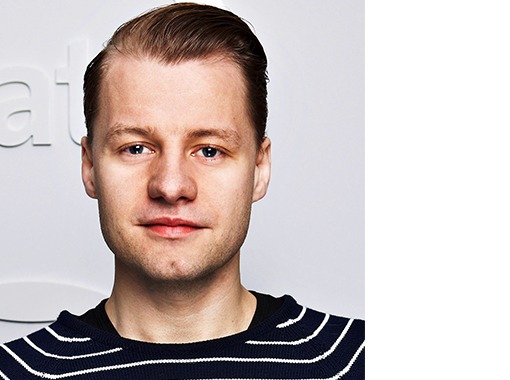Doctoral defence in Industrial Engineering - Sæmundur Elíasson

Aðalbygging
The Aula
The defence will be streamed live
Ph.D. student: Sæmundur Elíasson
Dissertation title: Effects of Onboard Processing on Groundfish Quality
Opponents:
Dr. Onrawee Laguerre, Senior Researcher and Deputy Director of FRISE at the French National Institute for Agriculture, Food, and Environment (INRAE) in France
Dr. Trygve Magne Eikevik, Professor at the Norwegian University of Science and Technology (NTNU) in Norway
Advisor:
Dr. Ólafur Pétur Pálsson, Professor at the Faculty of Industrial Engineering, Mechanical Engineering and Computer Science, University of Iceland
Also in the doctoral committee:
Dr. Björn Margeirsson, Research Manager Sæplast and Associate Professor at the Faculty of Industrial Engineering, Mechanical Engineering and Computer Science, University of Iceland
Sigurjón Arason, Professor Emeritus at the Faculty of Food Science and Nutrition, University of Iceland and Chief Engineer at Matís
Chair of Ceremony: Dr. Rúnar Unnþórsson, Professor and Head of the Faculty of Industrial Engineering, Mechanical Engineering and Computer Science, University of Iceland
Abstract:
The scope of this study is processing onboard fresh fish trawlers, focusing on bleeding and cooling processes and the effects on product quality and shelf-life. In recent years there has been a shift from less valuable frozen products to higher value fresh fish export of fillets and loins from Iceland. This development in the fresh fish fillets markets was made possible by technological developments in the value chain in the last decade. However, the primary onboard processing has been a weak link in terms of research studies in the value chain of groundfish. This research gap in the value chain and the renewal of the Icelandic fleet led to the current study, in which the objective is to evaluate primary processing onboard fresh fish trawlers, focusing on the bleeding and cooling processes.
The study evaluation is aimed at the effects of new onboard processes, to provide design criteria for further technical innovation and provide measurement results that producers can use as references regarding shelf-life and quality indicators. This is done with onboard research on time and temperature control, variable bleeding conditions and methods, different cooling and superchilling methods and on superchilled storage with focus on the effects on shelf-life and product quality. The results of the study show that the waiting time in the reception hold is the main deciding factor regarding fillet colour. As for the method of bleeding and gutting fish, the two-step process of bleeding and gutting showed only marginally better results in terms of fillet colour, compared to direct gutting.
Results of bleeding media conditions show the effects of time, temperature, water flow and recirculation on fillet quality, and indicate that pump flow recirculation has more effect on bleeding efficiency than water replacement. Comparison of newly developed onboard primary processing systems to older ones confirms improvements in terms of both uniformity of bleeding and cooling. The study results show that it is not advisable to store whole ungutted cod in onboard RSW for more than 24 hours. The onboard superchilling of whole gutted fish reduces some spoilage factors but superchilled storage after fillet processing was found to be more important for extended shelf-life. Simulation of a superchilled value chain from catch to market indicates that the freshness period and shelf-life can be extended by up to four days, compared to traditional ice cooling of whole fish and storage of fillets at 1 °C. The study outcomes can provide technical developers with premise and requirements for further technical solutions needed to deliver fish of the highest possible quality and with a maximum shelf-life to secondary processing.
About the doctoral candidate
Sæmundur Elíasson was born in 1977 in Reykjavik. He received BS in Industrial and Mechanical Engineering from the University of Iceland in 2002 and MS degree in Machanical Engineering from the University of Iceland in 2012. Parallel to his doctoral studies, Sæmundur works at Matís and lectures at the University of Akureyri. His parents are Elías Gunnarsson and Ingunn Sæmundsdóttir, both engineers. Sæmundur lives in Akureyri with his wife Guðrún Soffía Viðarsdóttir and their two sons.
Sæmundur Elíasson



